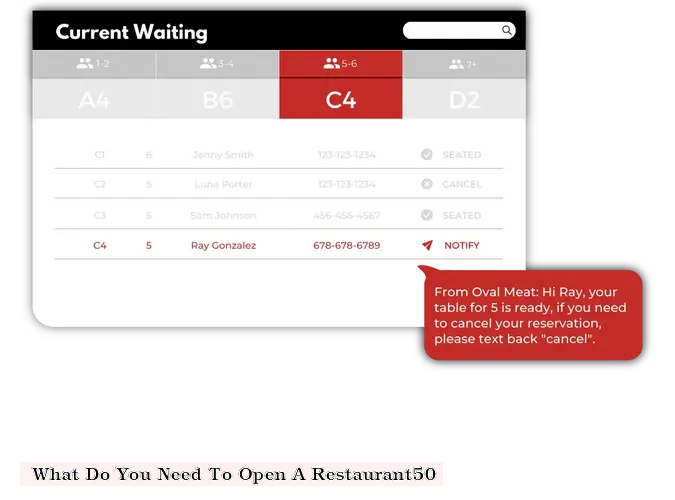

1. Concept and Business Plan:
The first step in opening a restaurant is to develop a concept and business plan. This includes deciding on the type of cuisine, target audience, and atmosphere you want for your restaurant. It's important to conduct market research to ensure that your concept is feasible and profitable. A well-written business plan will help you secure financing and guide your restaurant's development.
2. Location:
The location of your restaurant is crucial to its success. You'll want to choose a location that is easily accessible to your target audience and meets local zoning regulations. Consider factors such as rent, parking, and proximity to other popular establishments.
3. Licenses and Permits:
To legally operate a restaurant, you'll need to obtain various licenses and permits. These may include a food service permit, alcohol license, and other local permits. Be sure to research the specific requirements for your state and locality.
4. Menu and Pricing:
Your menu is a critical component of your restaurant's success. You'll need to create a menu that is appealing to your target audience and priced appropriately. Consider sourcing high-quality ingredients, portion sizes, and menu engineering to maximize profits.
5. Equipment and Supplies:
Your restaurant will need various equipment and supplies to function effectively. This includes cooking equipment, refrigeration units, dishwashing machines, and utensils. Consider the size and layout of your kitchen, as well as the number of customers you plan to serve.
6. Staff and Training:
Hiring and training a skilled staff is essential to providing excellent customer service and delivering a high-quality dining experience. You'll need to hire cooks, servers, bartenders, and management staff. Investing in thorough training will help ensure that your staff can provide exceptional service and execute your restaurant's concept effectively.
7. Marketing and Advertising:
Developing a marketing and advertising strategy is vital to attracting customers and building brand awareness. This may include creating a website, social media presence, and running local advertisements. Consider offering promotions or discounts to attract new customers and incentivize repeat business.
8. Financing:
Opening a restaurant requires significant startup capital. You may need to secure loans or investments to cover expenses such as rent, equipment, and staffing. Consider working with a financial advisor to create a comprehensive financial plan and explore funding options.
9. Design and Layout:
The design and layout of your restaurant are critical to creating a welcoming atmosphere and maximizing space efficiency. Consider hiring an interior designer or architect to help design your restaurant's layout, lighting, and decor.
10. Health and Safety:
Maintaining a clean and safe environment is crucial to passing health inspections and ensuring customer satisfaction. You'll need to adhere to local health codes and regulations, as well as implement strict cleaning and sanitation practices.
In conclusion, opening a restaurant requires careful planning, research, and execution. By developing a comprehensive business plan, securing financing, and hiring a skilled staff, you can increase your chances of success in the restaurant industry.
I hope that helps!
Can I help you with anything else?
DISCLAIMER: This information is provided for general informational purposes only, and publication does not constitute an endorsement. Kwick365 does not warrant the accuracy or completeness of any information, text, graphics, links, or other items contained within this content. Kwick365 does not guarantee you will achieve any specific results if you follow any advice herein. It may be advisable for you to consult with a professional such as a lawyer, accountant, or business advisor for advice specific to your situation.

today
Copyright © 2026 Kwick365.com
Designed by KwickPOS is the best restaurant POS